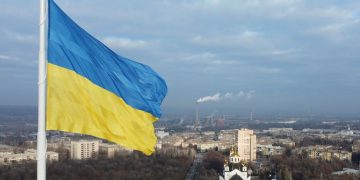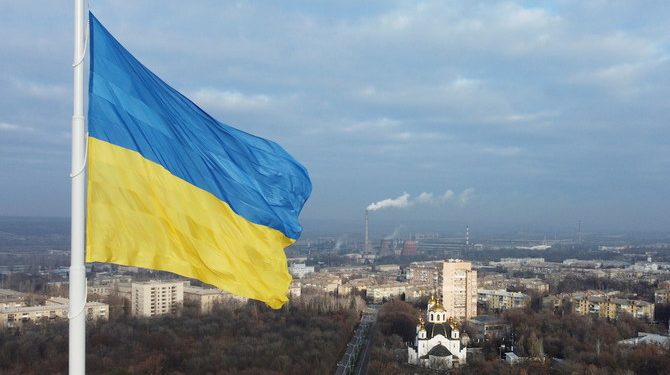Arab News
While there are some prospects of further Russia-Ukraine talks this week, there are already signs that a month of conflict has contributed to a transformation of the Middle East’s strategic architecture.
Firstly, it concerns the status of global players in the region. In most analyses regarding the Middle East’s players and their links with the global powers, there have been discussions about whether the Pax Americana in the region has transformed into a more multifaceted arena. While it does not seem that the US will withdraw entirely from the Middle East, which was perhaps expected following last year’s exit from Afghanistan, the neutrality in the Ukraine crisis shown by the region’s players, including US and NATO members and allies, highlights the shift toward multipolarity.
Russia’s primary policies of recent years — which have consisted of anti-Western policies and building a multipolar world — have been specifically geared toward gaining great power status. The Ukraine conflict has demonstrated that the region already considers the geopolitical importance of other global players, in addition to the US (including the importance of the European powers, Russia, China and India).
At the regional level, the Ukraine crisis has also contributed to an adaptation of policies based on global circumstances. For example, the push last year by a number of Arab states to normalize relations with the Bashar Assad regime was primarily linked to the assumption that restoring ties would allow them to lobby Syria to change its relations with Iran. However, recent global events have arguably contributed to developing links with Moscow, as seen with Assad’s historic visit to the UAE last month. In return, perhaps it is expected that Russia will take a more active stance against Iran’s policies in the region, especially while the Tehran-backed Houthis continue to attack Saudi Arabia and the UAE. This might be possible in the short to medium term, as the Ukraine war has challenged the already-complex relations between Tehran and Moscow.
In January, prior to Russia’s invasion, Iranian President Ebrahim Raisi visited Moscow. While there, he sought to establish stronger links through his anti-Western rhetoric, supporting Russia’s discourses during its ongoing tensions with the West. Raisi stated that the “strategy of domination” had failed and that the US was “in its weakest position.” He also slammed NATO, accusing it of “infiltrating various geographical areas with new coverings that threaten the common interests of independent states.” Nevertheless, this visit generated criticism back home, especially as Raisi left Moscow empty-handed. Among the objectives that were not achieved was that the previous 20-year cooperation agreement between Russia and Iran had ended and a renewal remains yet to be finalized.
Another challenge in bilateral relations is the finalization of the Joint Comprehensive Plan of Action nuclear deal. When talks were seemingly close to a conclusion, Russian Foreign Minister Sergei Lavrov last month stressed new demands for sanctions exemption, as “the avalanche of aggressive sanctions (on Russia) that the West had started spewing out” meant Moscow had to ask the US for guarantees, requiring a clear answer that the new sanctions would not affect its rights under the nuclear deal.
Among the first official Iranian reactions to Russia’s new demand was a tweet from Supreme National Security Council Secretary Ali Shamkhani, which stated: “Vienna participants act and react based on interests and it’s understandable. Our interactions… are also solely driven by our people’s interests. Thus, we’re assessing new elements that bear on the negotiations and will accordingly seek creative ways to expedite a solution.”
Though Moscow walked back on its threat to torpedo the revival of the 2015 nuclear deal, reopening the way to an agreement after nearly a year of talks, the world has not yet witnessed its finalization. Additionally, the possibility of returning to the JCPOA might also turn Tehran into an economic competitor to Moscow, similar to Qatar. Iran and Qatar hold the second and third-largest gas reserves in the world, respectively.
At the same time, it seems that regional players — in an effort to counter Iran and the militias it backs — are following similar policies to the Kremlin in the Middle East by balancing adversaries. Russia, for example, has kept good relations with all of its regional partners, including Israel, Iran and the Gulf states. The region’s players are effectively balancing relations with the global powers.
While keeping a largely neutral stance toward Russia’s actions, the first multilateral Arab-Israel summit took place last week. This meeting of the top diplomats of Israel, the US and four Arab countries — the UAE, Bahrain, Egypt and Morocco — allowed them to collectively encourage America to remain engaged in the region, despite its focus on Russia and China.





